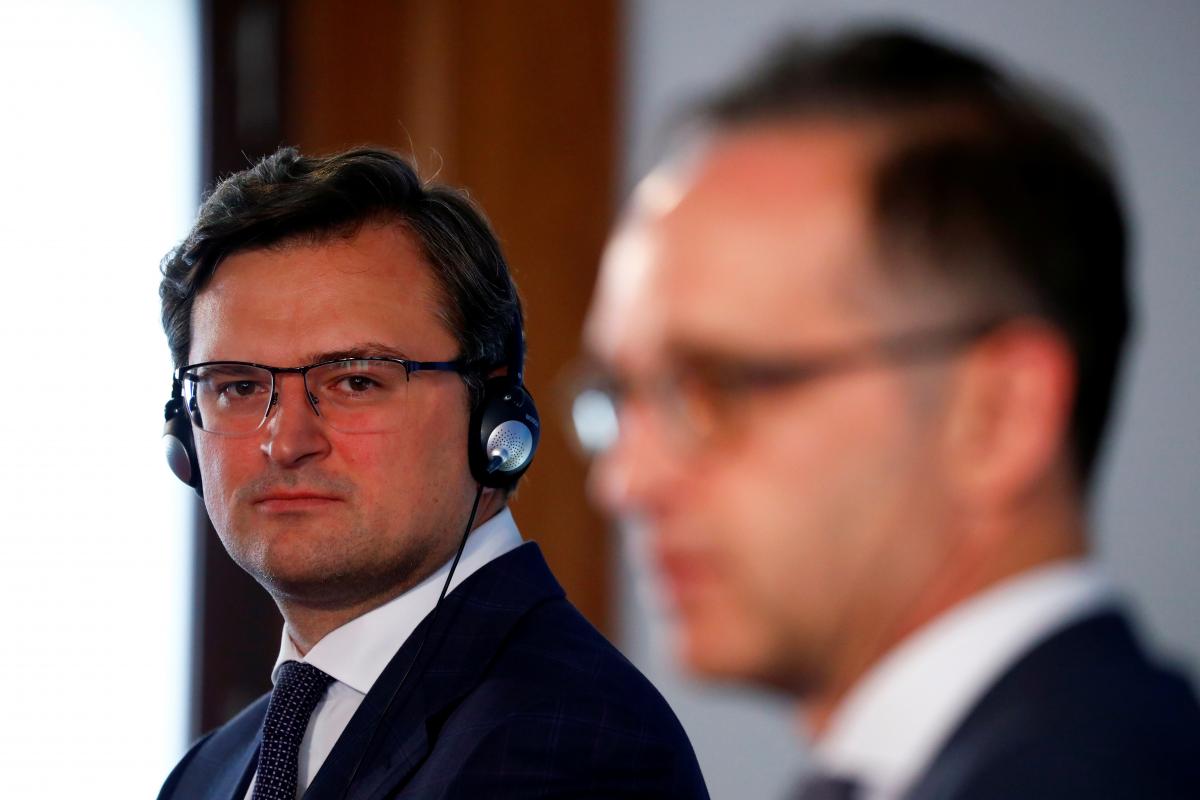
Ukrainian Foreign Minister Dmytro Kuleba says Ukraine will not introduce amendments to its new education law in terms of the education process for ethnic minorities other than those recommended by the Venice Commission.
"I'm absolutely convinced it is within our powers to solve this problem... In a very simple way. Our Hungarian colleagues argued that Ukraine did not comply with the recommendations made by the Venice Commission to the education law. We've implemented these recommendations – and this is a 'red line' I'd like to clearly outline for all who are worried about the future of the education law. Ukraine will make no additional changes to the education law other than those that are included in the Venice Commission's conclusions for reaching some compromises with Hungary," he said during the Pravo Na Vladu ("Right to Power") TV panel show on TV Channel 1+1 on June 11.
Read alsoUkraine FM Kuleba refutes "fake news" following his visit to Budapest
The minister added that the Venice Commission recommended that the transition period to a new education system be extended.
"I'd like to clearly stress that Hungary has never refuted one very clear fact during official and unofficial talks, and public statements, that is Ukrainians of Hungarian descent should speak the state language, i.e. Ukrainian. And this is a fundamental principle," he said.
"Our partner is not easy. Hungary is a very difficult negotiator, and I have already felt this during these months. But we need to hold a dialogue with any partner, especially that Hungary is our neighbor. It is a member state of the European Union and NATO, which in the previous decades, since the start of Ukraine's independence, has supported Ukraine in all its European and Euro-Atlantic aspirations," Kuleba said.
As UNIAN reported earlier, relations between the two countries slid to a chill after the Ukrainian parliament in 2017 passed a new education law.
Hungary has since then been blocking meetings of the Ukraine-NATO Commission, claiming alleged violation of rights of Hungarians living in Ukraine due to the provision of the law that determines that the language of command in educational facilities shall be the state language, which is Ukrainian.
According to the conclusion of the Venice Commission of December 8, 2017, the Ukrainian authorities were recommended to balance the language-related provision in the education law.
On January 16, 2020, the Verkhovna Rada, Ukraine's parliament, passed bill No. 0901 on secondary education. Three models of learning the Ukrainian language in schools have been laid down.
The first model is provided for the indigenous peoples of Ukraine who do not live in the linguistic environment of their language and who do not have a state that would protect and develop this language. First of all, these are the Crimean Tatars. For them, the first model includes teaching in the language of the indigenous people from 1 to 11 (12) classes along with a thorough study of the Ukrainian language.
The second model is for schools with instruction in the language of national minorities whose languages belong to the EU languages. Depending on a language group and language environment, the use of this model may be different, but the basics are: - Elementary school: the use of the mother tongue along with the study of the official language; - Grade 5: at least 20% of the annual volume of study time should be taught in Ukrainian with a gradual increase in volume so that in grade 9 to reach at least 40% of subjects that are taught in the official language; and - High school: at least 60% of the annual amount of study time in these institutions should be instructed in the official language.
The third model will work for the rest of the national communities of Ukraine. It concerns national minorities whose language belongs to one of the Ukrainian language families, as well as those who live mainly in the environment of their own speech (Russian language). Primary schools there will also have a minority language along with the study of Ukrainian, and from grade 5 at least 80% of school hours will be instructed in the official language.
At the same time, Hungarian Foreign Minister Peter Szijjarto says Hungary proposes that the number of subjects taught in Ukrainian for the national minorities not to be increased, which is provided for by the new law on secondary education.

